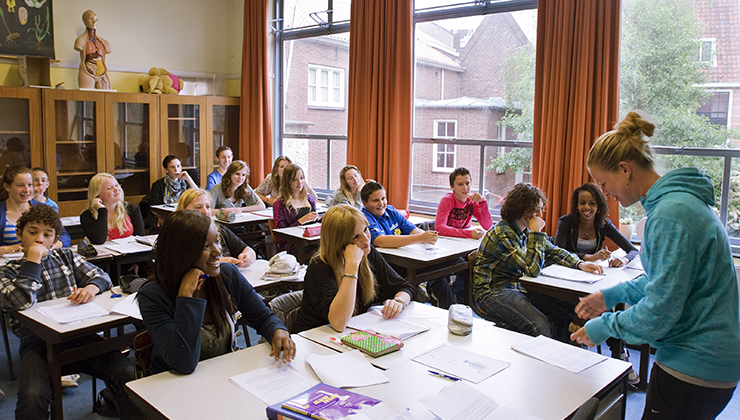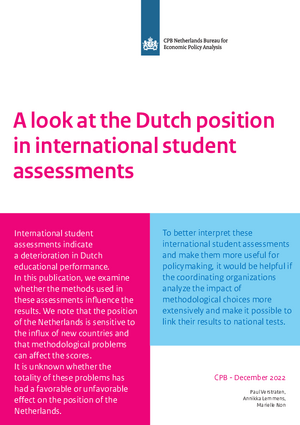A look at the Dutch position in international student assessments

For example, it appears that alterations of the assessment mode, such as a switch from paper-based to computer-based testing, work out more favorably for some countries than for others. This makes comparison of the scores over time and between countries more difficult. The coordinating organizations do use statistical methods to correct for differences in the assessment mode, but they do not always succeed in doing so completely. The literature shows that these problems can influence the position of the Netherlands both positively and negatively, although it is not possible to capture the total effect of the problems in one figure.
Downloads
The international student assessments could implement a number of changes that make the above-mentioned problems more transparent and contribute to solutions. This includes linking the PISA data to national tests, being more transparent about the consequences of arbitrary choices, and providing insight into the influence of changes in the assessment framework.
Authors


